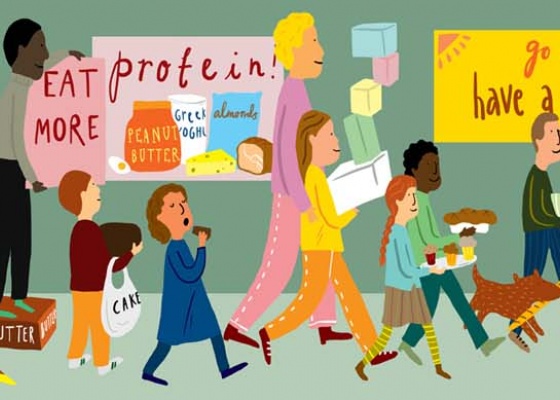Dietitians translate the science of nutrition into everyday information about food. They help with practical advice about food related problems, and how diet could help to treat disease and ill health.
This page is written by Dietitians where we will share information and advice on simple, effective ways we can reduce the risk of catching and transmitting coronavirus and support older people to maintain their health and wellbeing.
The British Dietetic Association (BDA) has produced a number of useful resources to support people concerned about eating well during these unusual times. All the information provided has been written by Registered Dietitians and is simple and practical.
We’ve particularly focussed on the needs of older adults who may be needing to self-isolate and whose nutritional needs may be slightly different to those of younger adults. This means that our guidance is not to focus on a low calorie diet but to aim for as varied and nutritious a diet as you can, containing enough of everything (including fluid) to maintain both body weight and health.
We also recommend continuing to be as active as you can be inside the house (and outside if that is appropriate for you) every day.
Some helpful links, which are updated regularly as guidance changes
Implementing a Food First approach to tackle malnutrition
Laura Clarke, Specialist Dietitian, and Jayne Brocklehurst, Dietetic Prescribing Lead, tell us about the great work that is being done in Doncaster to tackle malnutrition by implementing a food first approach in care homes and primary care settings. Read here.
The Managing Adult Malnutrition in the Community team has worked with the BDA and BAPEN to develop a range of patient information leaflets to advise those who have COVID-19 illness, or who are recovering after the illness, on eating well to assist in their recovery.
The leaflets aim to help those who have had a mild/moderate illness and have been coping at home and also for those who have been in hospital with a more serious illness.
The leaflets are free to download at www.malnutritionpathway.co.uk/covid19 and a useful tool has been developed on the website to enable people who have or have had COVID-19 to identify the nutritional advice leaflet that is most suitable to their needs www.malnutritionpathway.co.uk/covid19-resourcetool
Dysphagia Guide e-learning resource
Health Education England has worked in partnership with industry experts and care home staff to develop the Dysphagia Guide e-learning resource for those working with people living with dysphagia. The resource is helpful for those working in health and care , informal carers and people with dysphagia themselves.
The resource can be used to support people working in care to gain the relevant level of competency for their role as laid out in the Eating, Drinking and Swallowing Competency Framework.

